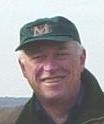 We dropped two different types of atomic bombs on Japanese cities in 1945. Hiroshima gets most of the historical ink, so I have chosen Nagasaki as the title here for my slightly vacation-delayed essay this year. The historical record of these events has been interpreted and reinterpreted to suit a spectrum of historical purposes and moral positions. James Carroll of the Boston Globe, a well-known columnist, a former Catholic priest, and something of a political liberal, has taken (as he admits in this week's column) his shots against Harry Truman's decision to use this horrific weapon on fellow human beings. Carroll straightforwardly admits it and tries in his 2009 commemorative essay to avoid his fundamental moral anxiety about our use of the weapon.
We dropped two different types of atomic bombs on Japanese cities in 1945. Hiroshima gets most of the historical ink, so I have chosen Nagasaki as the title here for my slightly vacation-delayed essay this year. The historical record of these events has been interpreted and reinterpreted to suit a spectrum of historical purposes and moral positions. James Carroll of the Boston Globe, a well-known columnist, a former Catholic priest, and something of a political liberal, has taken (as he admits in this week's column) his shots against Harry Truman's decision to use this horrific weapon on fellow human beings. Carroll straightforwardly admits it and tries in his 2009 commemorative essay to avoid his fundamental moral anxiety about our use of the weapon.Carroll does not succeed fully, although I will give him credit for finding another stalking horse in Curtis LeMay, a thoroughly unattractive character from those days who was full of himself and vicious theories about air power and American supremacy. Carroll does not succeed because he misrepresents several key facts in his brisk passing of the moral issue he used to beat to death. He says that following the bombings "in a snap" the war was over ... and it wasn't. Agonizing days, near putsches, colossal arrogance in the Japanese cabinet, nearly called our "bluff" and nearly sent the war into extra innings ... and unfathomable numbers of Allied and Japanese dead that surely would have ensued in a landing on Kyushu.
I say surely, because Carroll also says "that with varying degrees of consensus" historians now agree that a diplomatic solution was possible. Being a qualified historian (of Russia and the Soviet Union) the atomic bombing of Japan figures quite large in the all but ruptured relations with Uncle Joe Stalin for the clean-up and aftermath of the war, and so I have troubled myself to be reasonably well-read about it. The "varying degrees" Carroll refers to are comments made by some other historians that contain such big ifs that they are laughable as conclusions. We had determined to exact an "unconditional surrender" on Japan, and in truth, we accepted several small conditions, namely that the Emperor would be allowed to keep his throne, a concession that played well with our hope for a docile population upon surrender. It is quite a stretch to say that we could have negotiated "virtually unconditional surrender" without having demonstrated a scientific and technological superiority that was compelling, by the way, to only about half of Tojo's ministers. I know of no reputable historian who has not also thoroughly historicized the bombing with contemporary morality and knowledge of the escalation, mutually assured destruction theory, and in his or her own personal moral anguish believes a diplomatic solution was available before half a million or two million or more additional Allied casualties had been suffered.
But, Carroll keeps coming back to Truman's decision and the bombing year after year, and I do not blame him for this. It is a visit to one of history's major turning points, a path taken that has been fraught with terror in the classrooms James Carroll and I were assigned in our childhoods in the Washington, D.C. area, fraught with consequences for international relations, for Soviet arms development, for the relations between the countries of the world and Pakistan, India, China as well as the U.S., U.K. and France ... and now Israel ... and maybe soon Iran. Nagasaki got the second bomb and the point that the U.S. was determined. The Atomic Age had begun and we are only by slow degrees coming to understand that we cannot hope to survive long term with these weapons in our arsenals. The doomsday clock may have been turned back from the days of Kennedy and Khrushchev or later excursions toward oblivion, but by that clock today it is a mere "five minutes to midnight!"





